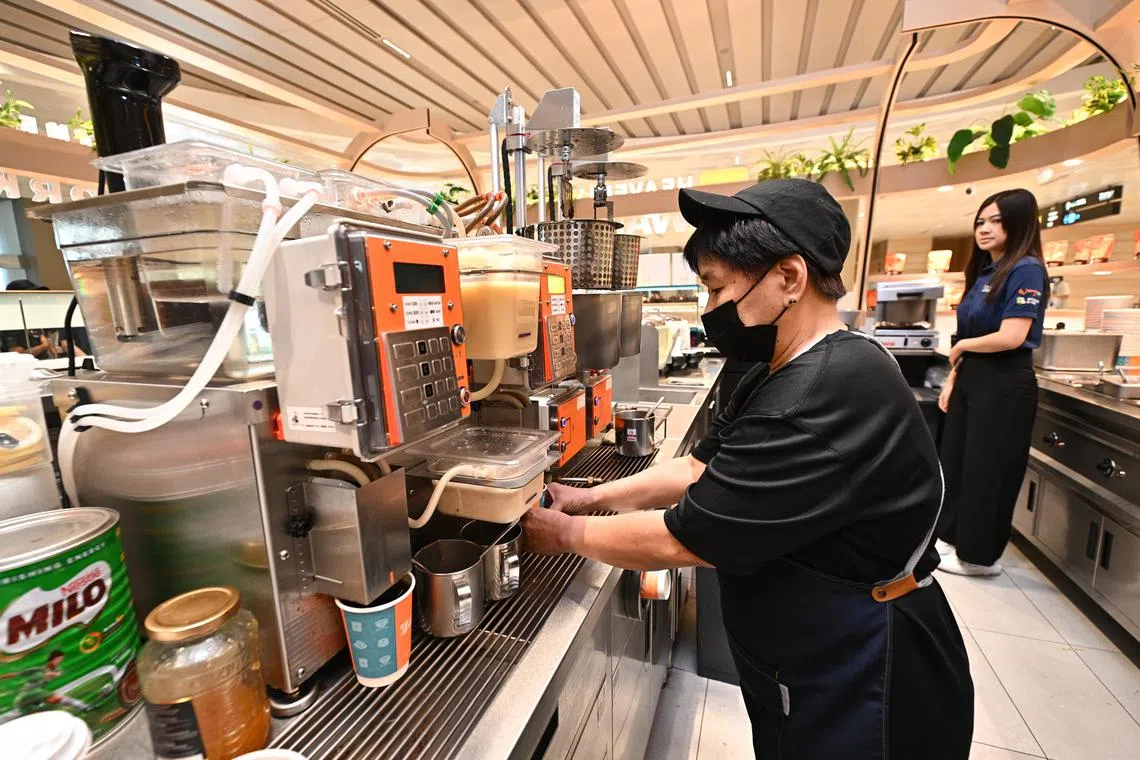Exploring new markets, expanding overseas key priorities for most Singapore SMEs: Survey
Sign up now: Get ST's newsletters delivered to your inbox

Labour costs and availability, inflation and rising interest rates were among the concerns of business owners in DBS’ annual SME Pulse Check survey.
PHOTO: ST FILE
SINGAPORE - Over 60 per cent of small and medium-sized enterprises (SMEs) in Singapore say their key business priorities in 2023 are to explore new markets and to expand overseas, a survey has found.
This is compared with 75 per cent who ranked these as their lowest priority in 2022.
Business owners continued to place high priority on ensuring consistent cashflow and managing cost.
On the other hand, they were most concerned about rising interest rates, labour costs and availability, as well as inflation.
These were some results of DBS’ annual SME Pulse Check survey, which covered 116 SMEs across a broad spectrum of industries.
With the persistent challenging business environment, 62 per cent of respondents said ensuring consistent cashflow and managing cost remained the SMEs’ top business priority.
Exploring additional new markets for their businesses (33 per cent) and first-time overseas expansion (31 per cent) were ranked next, driven by the reopening of borders along with support from government schemes such as the enhanced Enterprise Financing Scheme announced at Budget 2023, the survey noted.
This was followed by hiring, retaining and upskilling manpower (29 per cent), sustainability and greening their businesses (25 per cent) and digital transformation and innovating new business models (21 per cent).
To achieve these goals, SMEs are looking for strong banking partners, the survey said.
The majority of SMEs surveyed (58 per cent) ranked a “trusted and reliable banking partner with a long track record of supporting businesses” as most important.
Only 1 per cent of SMEs preferred a “purely digital banking partner”.
Besides rising interest rates and labour issues, other concerns that the SMEs highlighted were the goods and services tax (GST) hike and supply chain disruptions. On Jan 1, GST was raised from 7 to 8 per cent, and will be increased by another percentage point to 9 per cent in 2024.
On moving towards sustainability, firms say the return on doing so, as well as “cost of deployment” and “lack of government incentives/funding” are some barriers that they face. Moreover, 16 per cent of SMEs said they did not know how to even begin building a green business.
Mr Koh Kar Siong, group head of SME Banking in DBS, cautioned that continued headwinds from rising global inflation and high interest rates will add to SMEs’ operating expenses.
Therefore, managing cashflow and liquidity needs, along with effective credit risk management, will be critical to their success, he noted.
“SMEs are the backbone of our economy and have weathered different business and economic challenges over the last few years. They are resilient and optimistic as our survey has shown,” Mr Koh said.
“As they explore new markets and expand overseas with borders reopening, I am confident that our connectivity across the region with our rich ecosystem of partners, together with the respective Singapore government schemes, will provide the necessary support to propel them to the next level of growth.”



